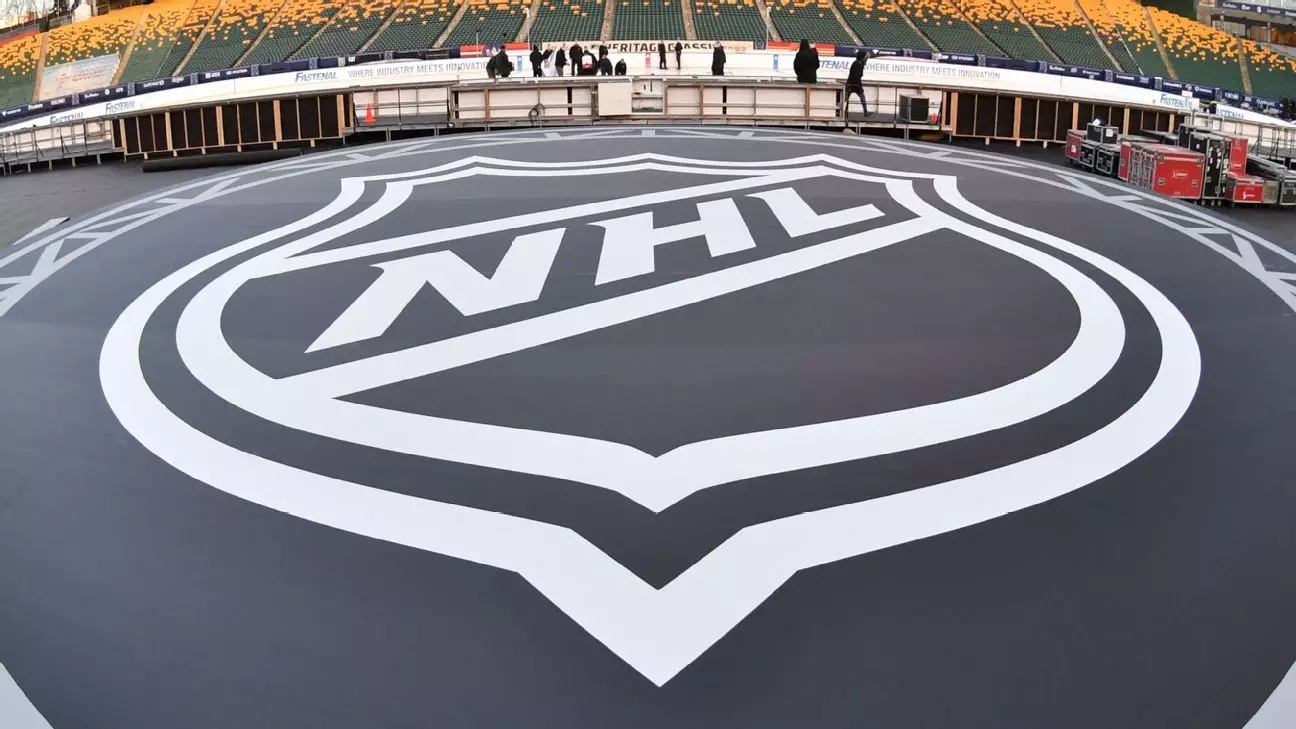In an innovative move that bridges the gap between professional sports and education, the National Hockey League Players’ Association (NHLPA) recently announced a transformative agreement with Boston College’s Woods College of Advancing Studies. This new partnership is set to revolutionize the landscape for current and former NHL players seeking to complete their college degrees. By providing a more accessible and flexible educational pathway, this collaboration embodies a forward-thinking approach to athlete development, emphasizing the importance of education even amid the demanding schedules of professional sports.
The journey of an athlete is often fraught with challenges, particularly in maintaining academic momentum amidst the demands of professional sports. Many players may enter the NHL after a promising college career but find themselves unable to complete their degree due to the rigorous commitments of being a full-time athlete. This new initiative addresses these challenges head-on. By aligning with Boston College, renowned for its commitment to adult education, the NHLPA is fostering an environment where players can thrive both on the ice and in the classroom.
Notably, this agreement will allow players the flexibility to pursue their education through various formats—be it online, on-campus, or hybrid learning. This diversity in education methods is crucial; it recognizes the unique circumstances that athletes face and provides a tailored approach that honors their professional commitments while promoting academic growth.
Testimonies from former NHL players further illuminate the significance and impact of this initiative. Marty Walsh, the NHLPA executive director and former mayor of Boston, emphasized how his educational experience at Boston College profoundly influenced his life. Despite the challenges of balancing work and school, he managed to earn his degree, underscoring that education is not just about obtaining a diploma—it’s about personal development and fulfillment. “The feeling of pride I had was just so different than anything, athletically, I have accomplished,” said Brooks Orpik, a former NHL player who returned to Boston College after retirement. His journey illustrates that the pursuit of education can lead to a rewarding sense of achievement that transcends sports.
The collaboration also enables players like Josh Jooris to transition from sports to academics seamlessly, allowing them to use previously earned credits towards their degrees. The assurance that one can accumulate credits over time without pressure is likely to motivate many athletes to return to school—a move that not only benefits them personally but prepares them for life after hockey.
Experts predict this agreement will positively influence a notable number of players within the NHL community. Dean David Goodman indicated that they expect several dozen players to take advantage of this program, which could ultimately reshape the narrative surrounding education in professional sports. With over one-third of NHL players having played college hockey, the initiative is timely. It raises awareness and changes the discourse, encouraging athletes to prioritize education alongside their athletic pursuits.
By providing an infrastructure that supports academic growth while recognizing the unique demands of professional athletes, Boston College and the NHLPA are setting a precedent for similar partnerships across different sports leagues. As highlighted by Walsh, the commitment to preparing players for life after their careers is paramount. This evolution in player support reflects an understanding of the reality that most athletes retire well before the age of traditional career exit, facing the reality of navigating future employment without the safety net of a completed education.
The partnership between the NHLPA and Boston College marks a significant milestone not only for hockey players but for the broader sports community. It reaffirms the notion that education should be an integral part of an athlete’s career journey, rather than an afterthought. By easing the path toward degree completion, this program is poised to inspire a new generation of athletes to take charge of their education, creating a lasting legacy that transcends the confines of the rink. As professional sports continue to evolve, so too must the support systems that empower athletes on and off the playing field.


Leave a Reply